- News
- Reviews
- Bikes
- Accessories
- Accessories - misc
- Computer mounts
- Bags
- Bar ends
- Bike bags & cases
- Bottle cages
- Bottles
- Cameras
- Car racks
- Child seats
- Computers
- Glasses
- GPS units
- Helmets
- Lights - front
- Lights - rear
- Lights - sets
- Locks
- Mirrors
- Mudguards
- Racks
- Pumps & CO2 inflators
- Puncture kits
- Reflectives
- Smart watches
- Stands and racks
- Trailers
- Clothing
- Components
- Bar tape & grips
- Bottom brackets
- Brake & gear cables
- Brake & STI levers
- Brake pads & spares
- Brakes
- Cassettes & freewheels
- Chains
- Chainsets & chainrings
- Derailleurs - front
- Derailleurs - rear
- Forks
- Gear levers & shifters
- Groupsets
- Handlebars & extensions
- Headsets
- Hubs
- Inner tubes
- Pedals
- Quick releases & skewers
- Saddles
- Seatposts
- Stems
- Wheels
- Tyres
- Health, fitness and nutrition
- Tools and workshop
- Miscellaneous
- Cross country mountain bikes
- Tubeless valves
- Buyers Guides
- Features
- Forum
- Recommends
- Podcast
feature
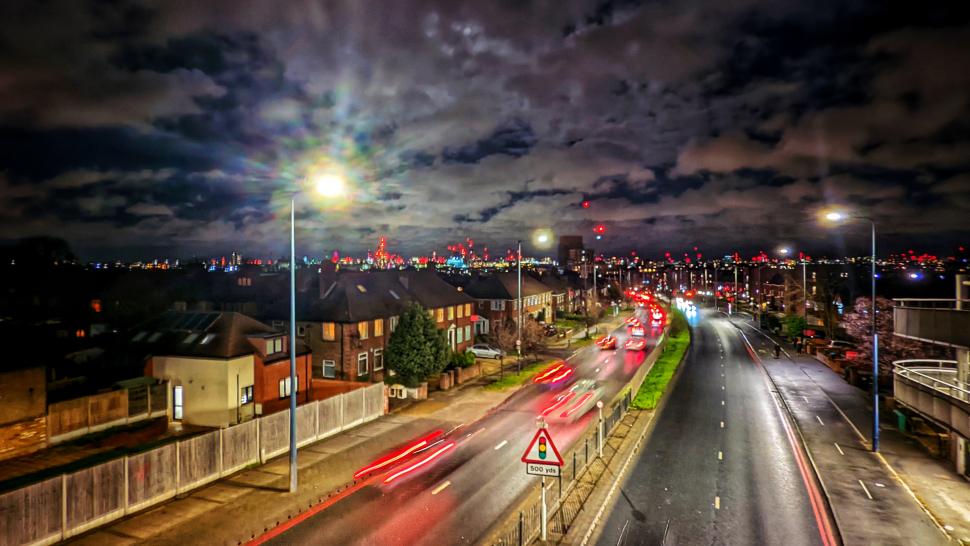 A40 in Acton (copyright Simon MacMichael)
A40 in Acton (copyright Simon MacMichael)‘The War on the Motorist’ deconstructed — looking at the truth behind the myths
The so-called 'War Against The Motorist' has been around for years – in the UK it’s something the Conservative-Liberal Democrat coalition government pledged to end immediately after the 2010 general election, a promise repeated by Rishi Sunak when he challenged Liz Truss for the leadership of the Tory party last year.
With the trope of how hard-pressed drivers are supposedly getting a raw deal regularly trotted out in some parts of the media, it’s timely to explore just how much of that is based on fact and how much is a myth, especially with politics in the UK and elsewhere becoming increasingly polarised in recent years.
In the first part of this two-part feature, we take a look at some of the general issues surrounding motoring in the UK, often ignored or at best glossed over in the media, with the second instalment going on to address some of the current flashpoints in this supposed conflict, the falsehoods being used to push back on efforts to get motorists to rethink their habits and make our towns and cities more liveable, as well as what the future may hold.
Why does this matter to cyclists?
It’s worth mentioning here that while road.cc is of course a website focused on cycling, a straw poll of staff, albeit a small sample, shows above-average access to a car; the two of us without one both live in London, which is an outlier to the national figures, not least because of the comprehensive public transport links here.
But we also found that people working here are way above the national average in using bikes to replace cars for short trips such as shopping, commuting, or meeting friends. We’re certainly not anti-car – we’re all for using them sensibly, and replacing trips made by them by walking, public transport and, of course, cycling, where practical.
To our knowledge, that’s the view of pretty much all road.cc staffers and contributors , but it won’t have escaped your notice that a large part of the media – the one obsessed with pushing back on what it terms a ‘woke’ agenda – latches onto any effort to encourage people to drive less, or promote other ways of getting around, especially for short trips, as somehow being an attack on the ‘rights’ of motorists.
There's a growing school of thought that suggests such rhetoric has real-world consequences, influencing people's attitudes and behaviour towards people who can't or don't drive. As only 2% of UK journeys are cycled according to statistics, the idea that motorists could feel like they are being penalised to suit a minority may be an unsettling thought for cyclists just trying to get around safely.
Before addressing the issues, it's worth mentioning that we're focussing on the UK's so-called 'War on the Motorist' in this article; however, it is a sentiment we've regularly seen repeated in other countries such as the United States and Australia too.
The ’right’ to drive
That word ‘right’ is in inverted commas for good reason. Driving a motor vehicle is something allowed under licence, with the motorist having to satisfy the authorities through passing the driving test their competence to take to public roads in charge of it (and even then, there is no shortage of cases in which someone behind the wheel of a car, van or truck has chosen to drive despite being banned, or never having obtained a licence, sometimes with fatal consequences).
That is just one of the problematic issues surrounding much media coverage of attempts to encourage people to drive less – whether that be through imposing speed limits on certain roads, or restricting access to them for vehicles that pollute more, or drivers who use them as short-cuts, among other things, issues that we will be taking a closer look at in a follow-up article tomorrow.
Let’s take a closer look at some of the assumptions behind reporting of motoring issues in the UK, the arguments often used to try and reject efforts to curb car use, and some home truths – one of those a ticking time bomb that is likely to hit the headlines in the coming months.
Everyone has a car
No they don’t, although you could be forgiven for thinking that the way that media outlets including BBC News report on issues such as rises in the price of fuel, and the assumption that car ownership is pretty much universal is one that underpins much of the coverage.
Data from the 2021 Census released earlier this month reveals that around nearly one in four households in England and Wales does not have access to a car or van.
That rises to around four in ten in cities including Manchester, Liverpool and London – where, in several boroughs closer to the centre of the capital, car ownership is very much in the minority, at just one in three households.
Even in the Royal Borough of Kensington & Chelsea – which has persistently blocked safe cycle routes on its main roads – just over four in ten households have access to a car or van, while nearly six in ten do not.
The cost of motoring keeps going up
Not true. In real terms, it’s been getting cheaper compared to most other things over at least the past quarter of a century.
Last year, the Scottish Parliament’s Information Centre (SPICe), in a blog post seeking to answer the question, ‘Is there a war on the motorist?’, highlighted that between May 1999 and July 2022, the cost of motoring in Great Britain actually fell by 19 per cent when compared with inflation during the same period, as measured by the Retail Prices Index (RPI).
Sourced from the Office for National Statistics, the figures show that during the same period, rail fares have increased by 31 per cent during the same period, and bus and coach fares by a whopping 102 per cent – scant incentive for people to switch mode of transport to more sustainable ones that help reduce the amount of motor traffic on our roads.
Fuel Duty is unfair
Back in 1993, John Major’s Conservative government introduced the Fuel Duty Escalator, aimed at reducing pollution from vehicle emissions and the need to build new roads to cope with the forecast increase in motor traffic, initially setting it at 3 per cent above inflation annually, and later that year increasing it to 5 per cent above inflation.
After Labour’s landslide under Tony Blair in 1997, it rose to 6 per cent above inflation, and stayed there until 2000 when, following a national fuel shortage amid the rising price of oil, Chancellor of the Exchequer Gordon Brown said that from then on it would only rise in line with inflation.
But once the Conservative-Liberal Democrat coalition came to power in 2010, George Osborne and subsequent Chancellors froze fuel duty – with one of his successors, the current Prime Minister Rishi Sunak, even reducing it last year.
Put another way, the 20.44 pence payable in duty on a litre of unleaded petrol from March 1989 rose steadily over the following two decades to stand at 58.95 pence per litre in early 2011 – and rather than increasing each year, as previously happened, has not risen since and following last year’s cut, is now 52.95 pence per litre.
But we pay ‘road tax’
If you look at posts concerning cyclists on social media, or on national or local newspaper websites, it won’t be long before someone raises the issue of ‘road tax’ as somehow giving people who drive motor vehicles precedence over other road users.
The problem there, of course, is that road tax itself was abolished in the 1930s, partly at the instigation of Winston Churchill, who foresaw the problems that claims of ownership of and entitlement to the highway would bring about unless drivers were swiftly dissuaded of the notion that they alone paid for the public highway.
What many motorists do pay is in fact Vehicle Excise Duty, based on emissions, with electric vehicles currently zero-rated, and even then if the car is being leased, it is the leasing company’s responsibility to pay it, not the drivers.
Instead, road building and maintenance and repair is paid for through general taxation, whether that be through income tax or council tax, and the amount of money raised through VED does not come close to meeting the bill.
In the current financial year, 2022/23, the total amount of VED paid is expected to be £7.2 billion across the UK according to government spending watchdog, the Office for Budget Responsibility – compared to an estimated £12 billion spent annually by central government and local councils in England alone.
Much of that will go on towards a few dozen road enhancement schemes on motorways and major A routes, such as junction overhauls and road widening to create an extra lane to ease congestion – even though it is well documented that doing so encourages what is known as ‘induced demand’ with the extra capacity created encouraging more drivers to take to those roads, often replacing journeys they may previously have made by public transport.
And what that means in practice is that the tens or even hundreds of millions of pounds spend to widen such roads swiftly results in the kind of traffic jam that prompted the investment in the first place – except now, with even more drivers sitting frustrated in their cars, though with barely a thought that they might be contributing to that congestion in the first place.
There are already too many motor vehicles on the road …
The simple fact is, there are too many motor vehicles on the road. According to data released by the Society for Motor Manufacturers and Traders (SMMT) last year, there were 40.5 million vehicles in the UK in 2021 – 4.7 million more than there had been in 2012, an increase of 13.3 per cent.
In 2021, 35 million of those vehicles were cars, a slight fall (0.2 per cent) on the previous year, which had also experienced a slight dip – the first consecutive annual decrease in car ownership in more than a century, according to the SMMT, which attributed the fall to component shortages and supply chain issues due to the pandemic.
However, 2021 saw an increase of 4.3 per cent in the number of light commercial vehicles on the road, with 4.8 million now in circulation – a rise fuelled in large part by consumer purchases moving online.
… and their number is forecast to rise
That two-year dip in the incessant rise in car ownership was also partly due to people deferring new car purchases as a result of the uncertainties caused by the pandemic – although in its latest quarterly forecast, published towards the end of last year, the SMMT is expecting the number of new car registrations next year, 2024, to be 18 per cent higher than they were in 2021.
Part Two will look at steps being taken to curb car use and make it easier for people to choose alternative options such as active travel – as well as the reception they have received, including addressing some of the misconceptions and at times outright misinformation put forward by opponents of such initiatives.
Latest Comments
- David9694 4 hours 38 min ago
Oxfordshire: Potholes 'out of control' and risk to cyclists...
- Motdoc 8 hours 52 min ago
You don't benefit from schools? You've never seen a doctor, a dentist, a teacher, didn't go to school yourself and don't care about the tax paying...
- thax1 10 hours 20 min ago
Another 'sound-alike' mid tier offer, so I get all excited and buy a bunch of them thinking I've got an absolute steal. Only to then realise I've...
- mdavidford 10 hours 30 min ago
first cast out the beam out of thine own eye
- eburtthebike 11 hours 52 min ago
Which is, ironically, very rare.
- mark1a 11 hours 53 min ago
New addition to the fleet, a Specialized Aethos. This is the Comp model, 12 speed 105 Di2, 10r carbon layup in pearlescent white, with upgraded...
- hawkinspeter 13 hours 1 min ago
Local 'nimbyism' dismissed as consensus is new scheme will 'increase footfall'...
- chrisonabike 13 hours 49 min ago
If they're formally recognising phone addiction, and have noted that our eating habits (driven by stuff people want to sell us) are obeseogenic ......
- Secret_squirrel 16 hours 59 min ago
Yes. Just like there's no push rod brakes or U brakes any more. Get with the program granddad.
- dreamlx10 17 hours 37 min ago
Looks like the perpetrators were not Italian
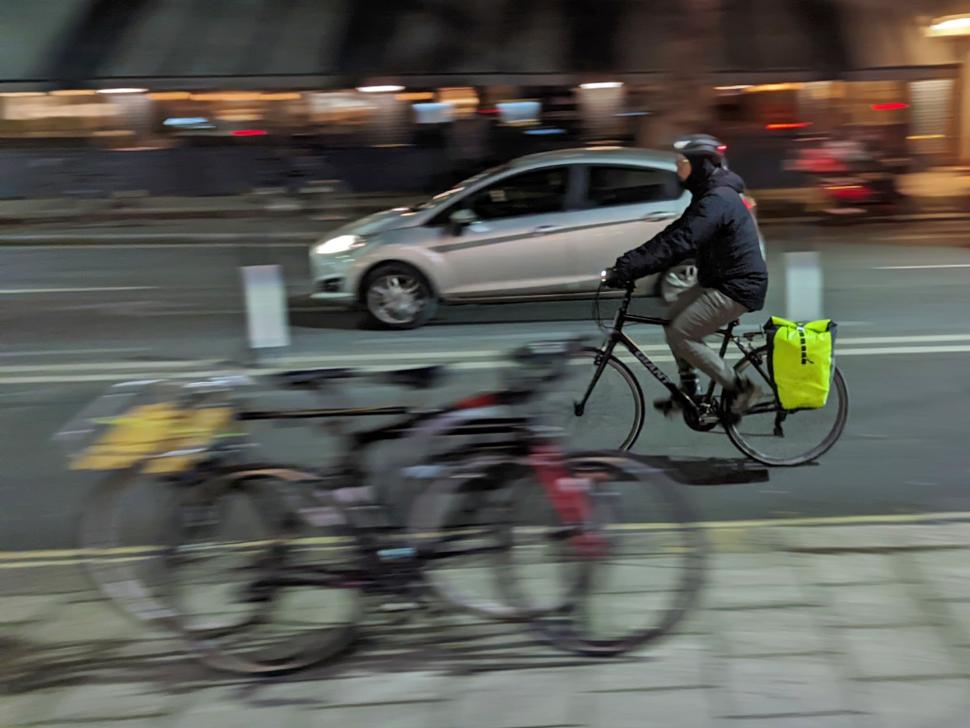
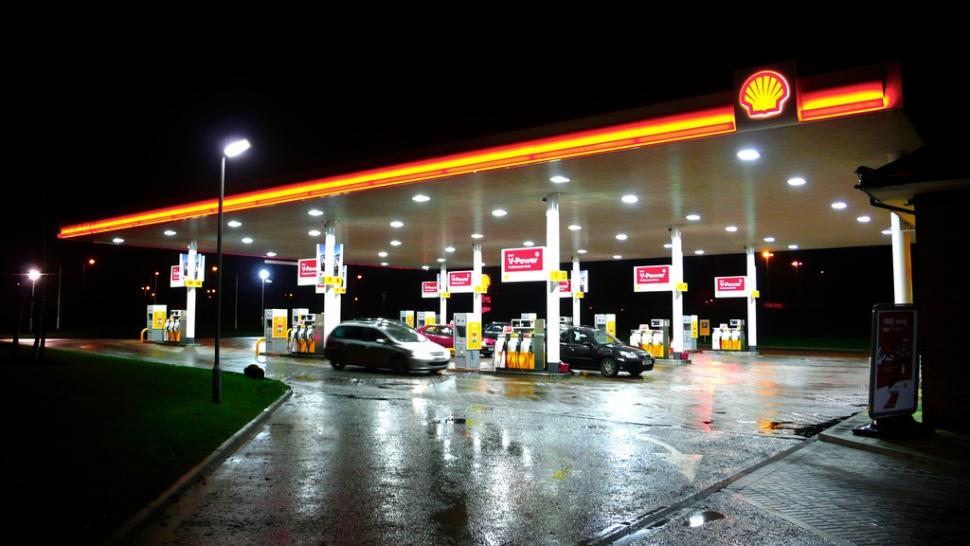
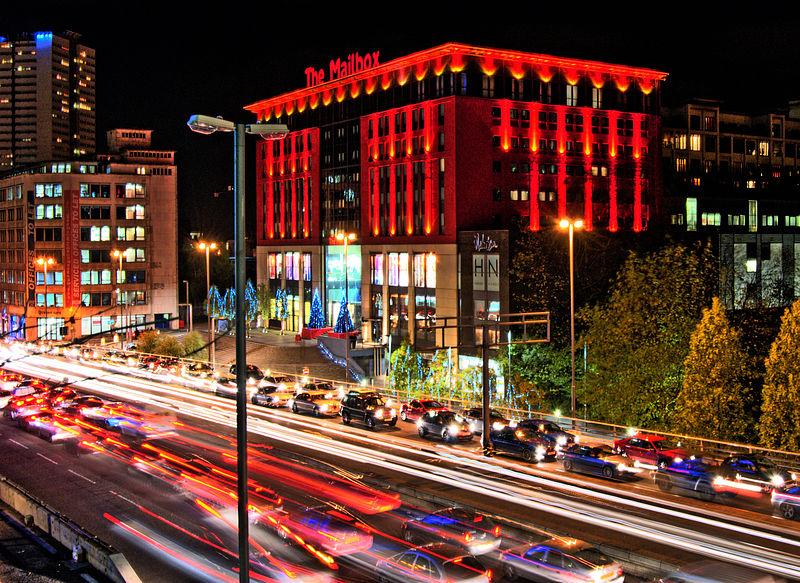
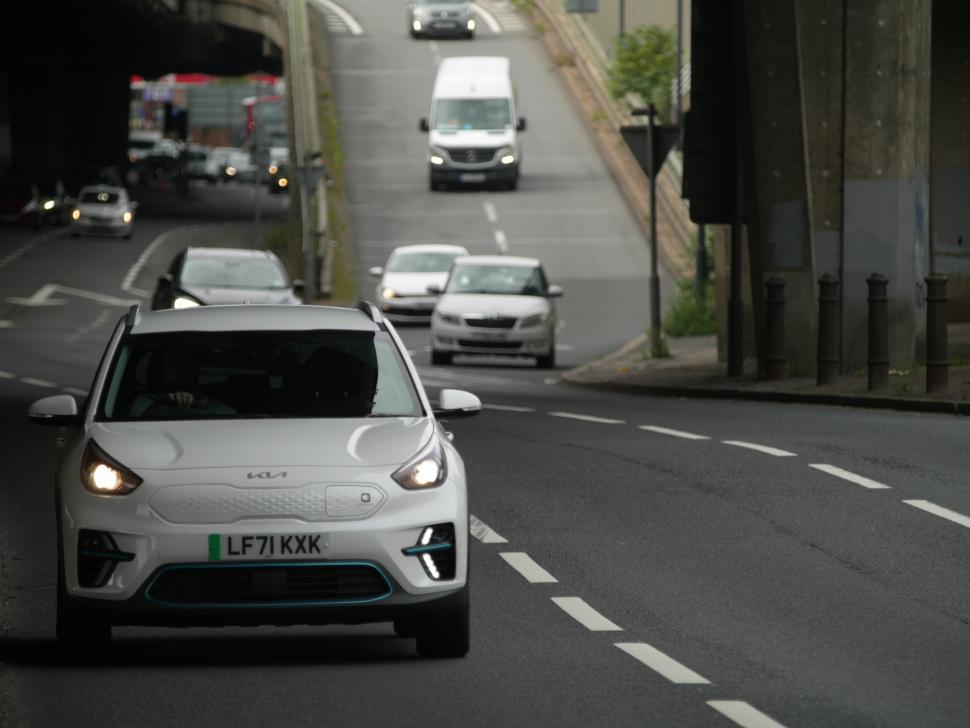
Add new comment
52 comments
The inflation section is a good example of L,DL+S.
RPI is not considered a "National Statistic" as it overestimates inflation considerably. Since 2010 It's usually about 1% a year over CPI or CPIH (which is now the leading official measure).
Compound that difference over time and that 'real terms reduction in the cost of driving' is likely to disappear and possibly even show an increase.
And yet RPI includes mortgage payments which CPI does not?
Of course there is a war on motorists it is a nice little earner for the government and local authorities , it doesn't have to work as long as they can keep telling the public that it does, be careful what you wish for because if by some mischance cyclists are the only road users left they will come after us for the mussing revenue with cycling permits statutory insurance registration plates etc etc
No they won't. They will find other means to raise revenue.
The roads budget to upkeep roads will be very minimal.
In the section about "Road tax" they should have said that most people who cycle end up subsidising drivers. I don't have a car and I don't use the roads as much as those who drive so, compared to someone who pays the same amount of taxes and drives hundreds of miles a year, I don't get as much back from my taxes, and I'm OK with that.
Same goes for paying for the NHS and being healthy or paying for state schools and not having children. It's called living in society so when drivers complain cyclists don't pay for roads, it's ignorance at its best.
for an article supposedly deconstructing the war on motorist myth, it sure spends alot of time not dealing with any of those motorist myths, speed cameras are cash cows, parking fines are unfair, congestion is caused by not having enough lanes on or new roads built etc etc.
There are 32million cars in the UK, 40million vehicles in total, there are only 67million people in this country, that means we can nearly just share a car between 2 people, which largely is the reality for most people. For context there are only 3million children under 5, only 9million in full time education, so why does the news ever talk about babies or schools as topics if its a numbers game ?
Everybody knows somebody who owns a car even if you dont and you live in a metropolis served by public transport that doesnt just make your life hell, so lets just accept a car is a pretty universal thing and start dealing with the real myths & problems.
And here was me thinking the problem was the war on cyclists. (The numbers back me up).
I harbour fantasies of waging a one woman war on shitty motorists... dreaming of the day that in a menopausal rage I pick up my DLock and wield it with gay abandon to frighten law-evading drivers. On your phone while driving, thwack, there goes your side panel. Close pass, well that's your passenger window out. Obscured plates, sitting in a yellow box junction, parking on a pavement, jumping a red light, smack smack smack smack.
Everyone has to have a dream, right?
I'm hoping the Ukranians will have some surplus light anti tank munitions left once they have dealt with their unpleasant Putin infestation. I wonder if you can get a bar mounting bracket?
Nah - that'll conflict will go on draining resources indefinitely (or until there are no Ukranians / Russia runs out of grudgingly compliant Russians, whichever comes sooner) I suspect. You'll want the ones the Swiss used to use:
http://www.velobility.net/portfolio_page/bicycle-12-swiss-army-bike/
Oh - or the "Jeep" e-bike (sorry wtjs, but war is hell and "cheating" is a given).
https://road.cc/content/news/military-bikes-make-comeback-e-bike-form-28...
But then you'd have to buy a new lock.
Is 'gay abandon' and 'menopausal rage' not on the banned phrase list..
Why is it that ownership, use of and how a vehicle is operated is supposedly sacrosanct?
I've just listened to a heated (R4) programme on 15 Minute Cities with the person opposing them supporting democratic debate into travel solutions for cities......probably omiting the statement that 'so long as it doesn't impact on the right to drive a car whenever, wherever and however'. When you walk out of your front door to travel, the car should be one option, but not the only option (even for people with disabilities). Even if every car was magically changed to electric with zero pollution, congestion and volumes of traffic still degrade our cities. They just don't get it; I hope the majority see through their campaign to link this to global conspiracy theories on restricting liberty.
You know, I think there's a regular on here (who seems to have been very quiet for the last couple of days) who might take exception to everything you've written in that section...
Don't get too excited, it's half term
Not yet in the West Midlands and Warwickshire, but it will be in *checks watch excitedly* 30 minutes!
Beetlejuice!
Beetlejuice
AAAARGH!
Time to call in the other wildlife!
Banhammer? Wouldn't be the first time...
If it's more like nearly half term won't they be busy looking for kids riding bikes and telling them to stop?
Say it ain't true!
Another issue in terms of number of vehicles is the fact that a vast proportion are idle the majority of the time. And so clog up residential roads. One alternative that does not seem to have been explored widely is to challenge the ownership model with a widespread carshare scheme to reduce this waste
I too find this odd. I am surprised that people have not widely adopted this model.
Apparently, as soon as self driving vehicles are actually a thing, every one will be doing a version of it.
...until Tesla recalls all the self-driving vehicles, or pushes out a patch restricting ownership to one named driver.
Really? and who is going to pay for/run car-sharing schemes? as for self-driving vehicles, that's a pipe dream that will never eventuate, using normal public roads.
Imagine telling all road.cc members to ditch their custom steel bike with Brooks saddle and chrome details or their carbon fibre bicycle with 4digit priced wheels for an Aldi level bike. Some people like material stuff and the car works for many people like that.
It can be done though. The Dutch riding shitty bikes in perfect cyclepaths, have practically denounced their bike commuter passion, but embraced super-efficient transport.
Similarly I am sure there would be many people that would embrace common car ownership by not being car passionate, but vehicle car sharing schemes would be very expensive judging from the extreme costs scooter sharing has, that is car fuel costs in some cases! The big cost in scooter schemes is due somebody extra beyond car companies, fuel companies and car repairers will have to make money as well as vandalism and bad use that increase costs that wouldn't be done on a private means of transport. Scale that up to car cost levels and you undestand that this would be a very expensive service.
What, and sit in a seat that other yucky people have sat in?! There's a reason we don't ride in buses and trains. Who's going to clean and sanitise this fleet of shared cars after every use by the unwashed masses?
I do all my motoring using car share vehicles, predominantly from Co-Wheels or Enterprise. I'm always amazed that more people don't do it, especially with the current cost of living crisis in full swing. For me a £10/month membership fee allows me to rent a BMWi3 or similar for £5.95/hr plus an additional 12p/mile to cover fuel costs.
It's an absolute no-brainer, yet motorists would far rather pay through the nose in depreciation, fuel, insurance and maintenance to sit all alone in their shitty wank-panzers
Pages